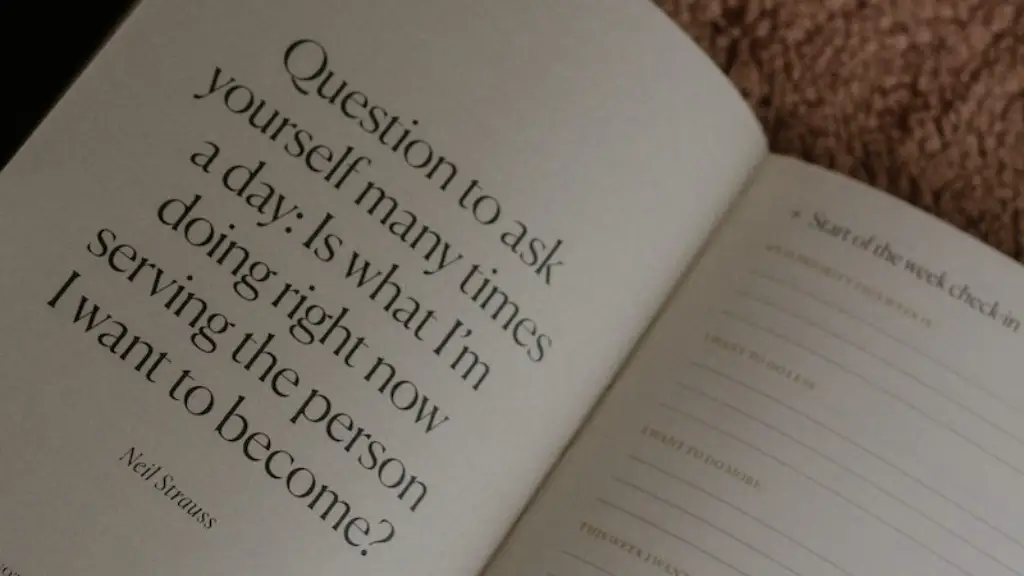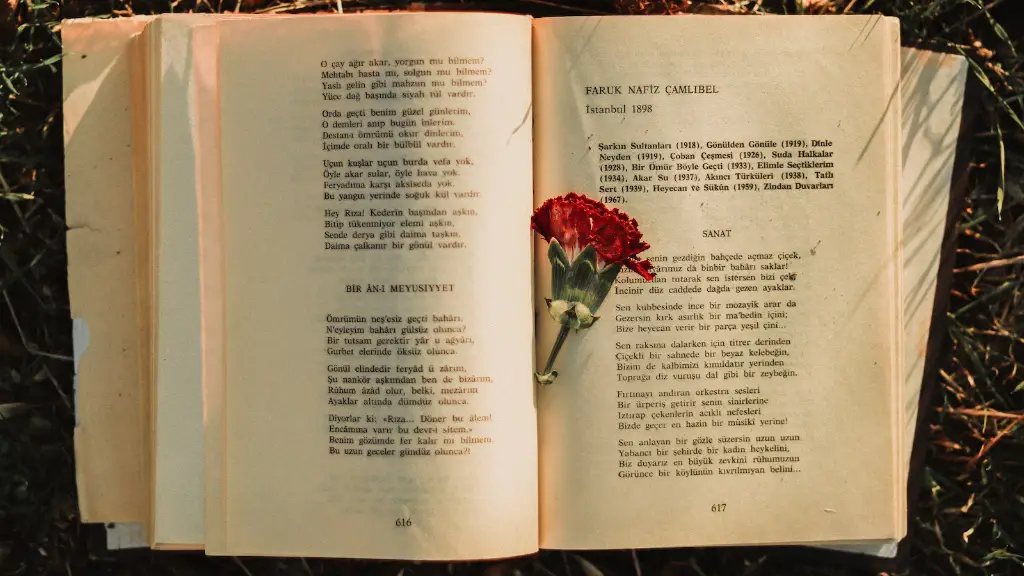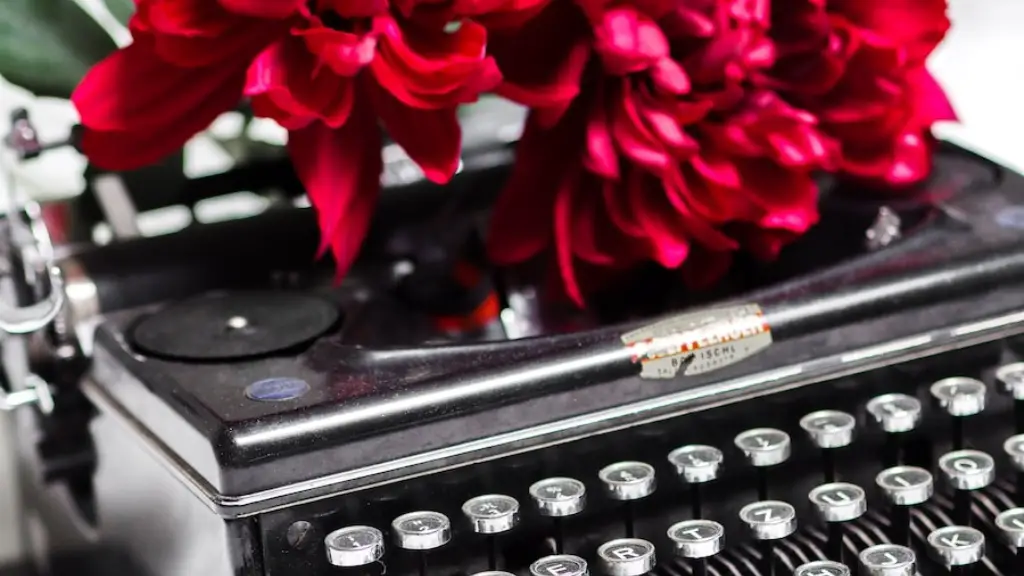When it comes to writing a poetry essay introduction, there are many considerations that must be taken into account. Writing a poetry essay is different from writing an essay on any other type of literature. There is a lot of emotion, beauty and deep meaning behind every poetry essay. As such, a well-crafted introduction is one of the most important aspects of a poetry essay.
If you are writing a poetry essay, you must have a deep understanding of the poem’s meaning before you start writing. You also need to consider several different elements of the poem such as the author’s background, themes, and stylistic choices. By taking into account these elements, you can craft an introduction that will capture the reader’s attention and help them understand the poem better.
The first step in writing a poetry essay introduction is to identify key elements of the poem. Analyzing the poem can be very beneficial. Look at the structure, the rhyme scheme, the symbolism, and the language for insights into the poem’s meaning. By doing this, you can discover the bigger picture that the poet is trying to get across.
Another important consideration when writing a poetry essay introduction is to establish the tone of your essay. By establishing the tone of your essay, you can ensure that your readers understand your interpretation of the poem. Tone can be created through the use of language, imagery, and other literary devices.
Once you have analyzed the poem, come up with a thesis statement. The thesis statement should provide an overview of the essay as well as the main argument that you are attempting to make. This is an important part of the introduction as it will identify what the reader can expect from the essay.
When you start writing the introduction, this is the time to grab the reader’s attention. You can do this by using vivid descriptions, engaging facts, or interesting stories. However, it is important that the introduction is engaging without being overbearing. You should provide enough information to give the reader an understanding of the poem without giving too much away.
It is important to finish the introduction by providing a brief summary of the main points that will be discussed in the essay. This summary should provide an overview of the essay and leave the reader with a better understanding of the poem.
Crafting a Thesis Statement
When writing a poetry essay, it is important to have a strong and clear thesis statement. A thesis statement is a sentence that outlines your central argument; it will guide your paper and keep your argument on track. It should be concise and include the main idea of your essay.
When crafting a thesis statement, you should start by asking yourself questions. Think about the theme, the structure, and the tone of the poem. Identify what the poem is about, what it is saying, and what it could mean. These questions will help you develop a strong thesis statement.
A strong thesis statement makes a claim about the poem and provides evidence or support for the claim. It should be clear and unambiguous so that readers can understand your argument. Make sure your thesis statement is specific, so that you can back up your claims with evidence in the essay.
Analyzing the Poem
Analyzing a poem can be a difficult task, but there are certain steps you can take to make the process easier. First, identify the theme or main idea of the poem. Think about why the poet is writing about this topic and the different literary devices they use to convey their message.
Next, look at the structure of the poem. Analyze the meter, line length, and rhyme scheme of the poem. This will give you an idea of how the poem works and the effect the structure has on the poem. Lastly, look at the language used in the poem. Consider the poetic devices the poet uses such as metaphor, alliteration, and simile.
By gathering this information, you can develop an understanding of the poem as a whole and come up with an interpretation of the poem. This can help you to come up with a thesis statement that is both informed and unique.
Crafting Your Essay
Once you have analyzed the poem and crafted your thesis statement, it is time to start writing your essay. You can use the information gathered during your analysis to craft your essay. Begin by introducing your topic and thesis statement. Then, provide evidence to support your argument. Consider how each line of the poem contributes to your argument and cite examples from the poem to back up your claims.
When writing your essay, it is important to keep the language clear and concise. Avoid long and complicated sentences, as they can make your essay difficult to read. Additionally, make sure to provide clear and thorough explanations. Don’t assume that the reader will understand your point; explain your position and provide evidence to back up your claims.
Engaging the Reader
Engaging the reader is an important part of any essay. You want to hook the reader and make them want to read the essay. You can do this by using vivid descriptions, personal anecdotes, or engaging facts. Additionally, you can use literary devices such as alliteration or metaphors to make the essay more interesting.
When you are engaging the reader, you should also pay attention to the tone of your essay. The tone of your essay should be consistent and reflect the essay’s main message. Use language that conveys the emotion and meaning of the poem. Additionally, make sure to avoid vague statements and make sure each point is backed up with evidence.
Conclusion
Writing an effective poetry essay introduction takes some effort, but if done correctly, it can be a very rewarding experience. It is important to have a deep understanding of the poem, craft a strong thesis statement, and engage the reader. Additionally, use vivid descriptions and literary devices to make the introduction as interesting as possible. Lastly, make sure to provide a brief summary of the argument you are making in the conclusion of the introduction.




